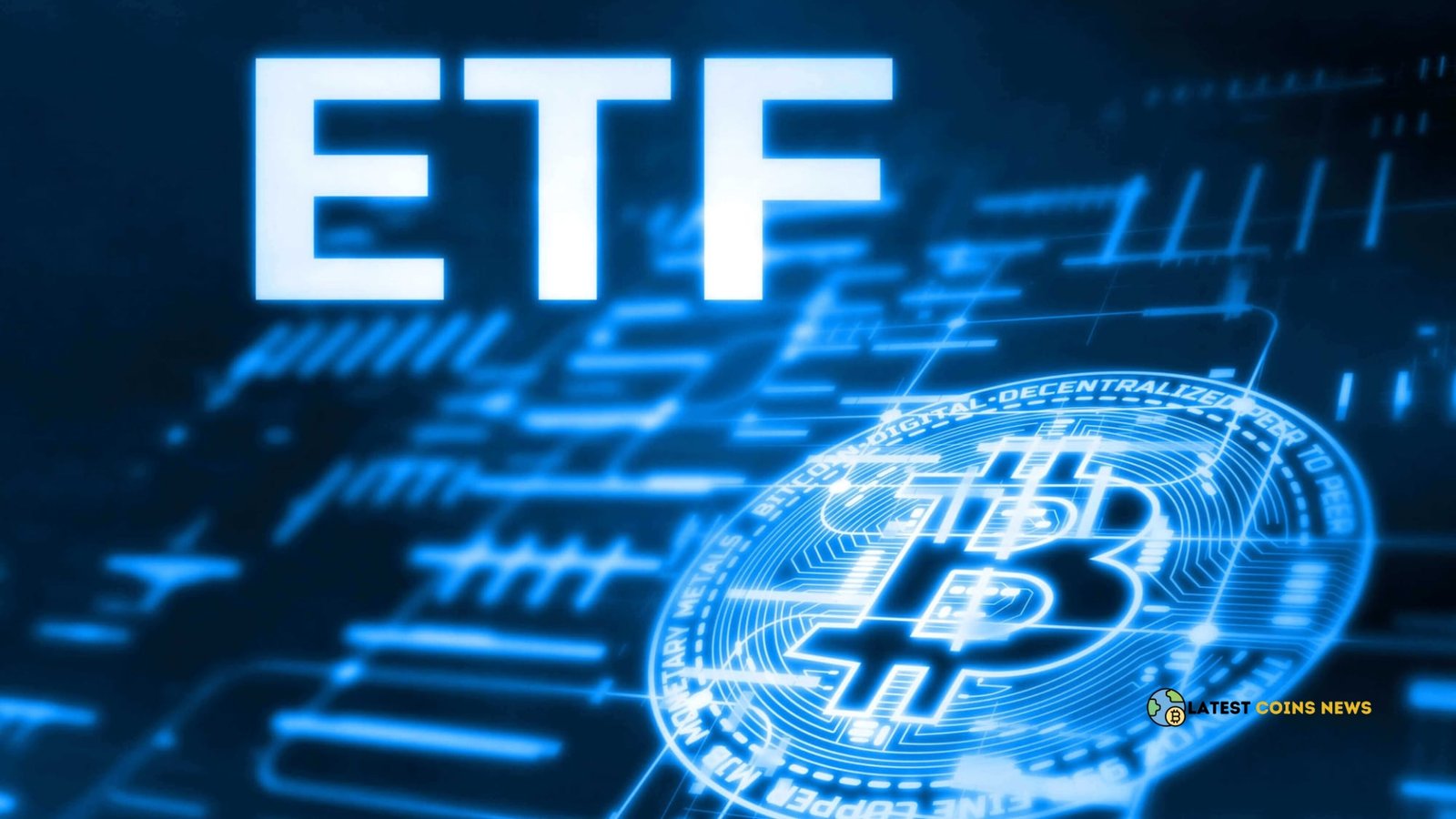Comprehensive Bitcoin ETF List Performance & Trading News

The cryptocurrency investment landscape continues to evolve, with Bitcoin ETFs gaining significant attention. This article explores the performance and trading news surrounding these financial instruments, which allow investors to gain exposure to Bitcoin without directly purchasing the digital asset. Understanding the dynamics of Bitcoin ETFs is crucial for any investor looking to navigate this volatile market.
Understanding Bitcoin ETFs
Bitcoin ETFs, or exchange-traded funds, are investment vehicles that track the price of Bitcoin, allowing investors to buy shares in the ETF rather than the cryptocurrency itself. This structure provides an avenue for exposure to Bitcoin’s potential gains while avoiding the complexities of direct ownership, such as wallets and private keys. As the market matures, these ETFs are becoming popular among investors looking to diversify their portfolios with digital assets.
Bitcoin ETFs are designed to provide exposure to Bitcoin’s price movements, acting as a bridge between traditional finance and the cryptocurrency market. Investors can access the cryptocurrency’s market performance through a regulated platform by investing in a Bitcoin ETF. This offers convenience and security, as the ETFs are managed by established firms like BlackRock and Grayscale, ensuring compliance with the Securities and Exchange Commission (SEC) regulations.
Types of Bitcoin ETFs Spot vs Futures
There are two primary types of Bitcoin ETFs: spot Bitcoin ETFs and Bitcoin futures ETFs. Spot Bitcoin ETFs hold actual Bitcoin as the underlying asset, directly reflecting the market price. In contrast, Bitcoin futures ETFs invest in contracts that speculate on the future price of Bitcoin, which can introduce additional volatility. Understanding the differences between these types is essential for investors, as each has unique risk factors and potential for returns in 2024 and beyond.
How Bitcoin ETFs Work in the Market
Bitcoin ETFs pool investors’ money to buy Bitcoin or futures contracts, which are then traded on exchanges like Schwab and others. These ETFs have an expense ratio, which covers management costs and can affect overall returns. As trading volumes fluctuate, the inflow and outflow of capital can significantly impact the performance of these ETFs, making them an interesting option for investors looking to hedge against market volatility or capitalize on price movements in the cryptocurrency space.
Performance of Bitcoin ETFs

Analyzing the Historical Performance of Bitcoin ETFs
The historical performance of Bitcoin ETFs has been notably dynamic, reflecting the inherent volatility of the cryptocurrency market. Over the past few years, various Bitcoin ETFs, including those from major firms like BlackRock and Grayscale, have demonstrated substantial gains, particularly during bullish market phases. Investors keen on these ETFs should analyze past trends, as they can provide valuable insights for future investment decisions in 2024 and beyond.
Comparative Performance: Bitcoin ETFs vs Traditional Stocks
When comparing Bitcoin ETFs to traditional stocks, a distinct divergence in performance emerges. Bitcoin ETFs have showcased much higher volatility, often resulting in greater short-term gains or losses than established stocks. While the S&P 500 might provide steadier returns, Bitcoin ETFs offer a unique investment opportunity for those seeking higher risk for potentially higher rewards, capitalizing on the growing recognition of Bitcoin as a digital asset and store of value.
Factors Influencing Bitcoin ETF Performance
Several factors influence the performance of Bitcoin ETFs, including market sentiment, trading volumes, and regulatory developments. The inflow and outflow of capital into these ETFs can significantly affect their price, largely driven by investor perceptions of Bitcoin’s future trajectory. Additionally, SEC regulations and approval processes for new Bitcoin ETF listings also play a crucial role in shaping the investment landscape and the overall performance of these products.
Latest Trading News and Insights
Top News Stories Impacting Bitcoin ETFs
The latest news surrounding Bitcoin ETFs has been pivotal in shaping investor sentiment and market dynamics. Key developments, such as BlackRock’s announcements regarding their Bitcoin ETF products, have drawn significant attention from the trading community. Furthermore, the ongoing discussions about SEC regulations and potential approvals for new Bitcoin ETFs can lead to rapid shifts in market behaviour, making it essential for investors to stay updated on these top news stories.
BlackRock’s Influence on Bitcoin ETF Trading
BlackRock’s influence on Bitcoin ETF trading cannot be overstated, as the firm is a leading player in the cryptocurrency investment space. By launching innovative ETF products, BlackRock has attracted considerable capital inflow, enhancing the legitimacy of Bitcoin ETFs in the eyes of traditional investors. Their strategic moves often set the tone for the market, leading to heightened interest and trading activity across various Bitcoin ETF offerings.
SEC Updates and Regulatory News for Bitcoin ETFs
Updates from the SEC regarding Bitcoin ETFs are crucial for investors monitoring the regulatory landscape. The implications can be far-reaching as the SEC evaluates new proposals and adjusts its stance on Bitcoin ETF approvals. Regulatory clarity can promote confidence among investors, potentially driving more capital towards Bitcoin ETFs while ensuring that these financial products meet necessary compliance standards, thus paving the way for a more robust market environment.
Investment Strategies with Bitcoin ETFs

How to Invest in Bitcoin ETFs: A Beginner’s Guide
For beginners looking to invest in Bitcoin ETFs, the process involves selecting a platform that offers these exchange-traded funds, such as Schwab or Fidelity. Investors should create a brokerage account and research the various Bitcoin ETF products available. By understanding the expense ratio and the underlying assets of each ETF, investors can make informed choices that align with their financial goals and risk tolerance.
Utilizing Bitcoin ETFs for Diversification
Bitcoin ETFs provide a unique opportunity for diversification within an investment portfolio. By incorporating Bitcoin ETFs, investors can hedge against market volatility and reduce overall risk exposure. These ETFs can counterbalance traditional assets, such as stocks and bonds, allowing investors to capitalize on the growth potential of cryptocurrencies while maintaining a balanced investment strategy across different asset classes.
Long-term vs Short-term Trading Strategies
Investors must consider their approach to Bitcoin ETFs, as long-term and short-term trading strategies yield different outcomes. Long-term investors may focus on holding Bitcoin ETFs to benefit from potential price appreciation over time, while short-term traders might capitalize on market fluctuations for quick gains. Understanding the volatility of Bitcoin and the overall cryptocurrency market is essential in determining the most suitable trading strategy for each investor.
Future Outlook for Bitcoin ETFs
Predictions for Bitcoin ETF Performance in 2024
As we look ahead to 2024, predictions for Bitcoin ETF performance suggest continued growth and increased investor interest. Factors like regulatory clarity from the SEC and the maturity of the cryptocurrency market are likely to influence performance. Analysts anticipate that Bitcoin ETFs will attract more institutional investments, further solidifying their place as a viable asset class and enhancing the legitimacy of Bitcoin as a store of value.
Emerging Trends in Bitcoin and Cryptocurrency ETFs
The landscape of Bitcoin and cryptocurrency ETFs is evolving rapidly, with emerging trends shaping the future of these investment vehicles. Innovations, such as introducing crypto ETFs with a basket of digital assets like Ether and XRP, are gaining traction. Additionally, the increasing interest in spot Bitcoin ETFs, which provide direct exposure to Bitcoin, reflects a growing demand for more accessible investment options in the crypto space.
Potential Risks and Opportunities for Investors
Investing in Bitcoin ETFs presents both risks and opportunities for investors. While the potential for high returns exists, the inherent volatility of cryptocurrencies can lead to significant losses. Regulatory changes and market dynamics will continue to play a crucial role in shaping the investment landscape. Investors must remain vigilant, continuously assessing their risk tolerance and adapting their strategies to capitalize on opportunities while mitigating potential downsides in the cryptocurrency market.
Also Read: Crypto Investing Strategy A Comprehensive Guide for 2024
